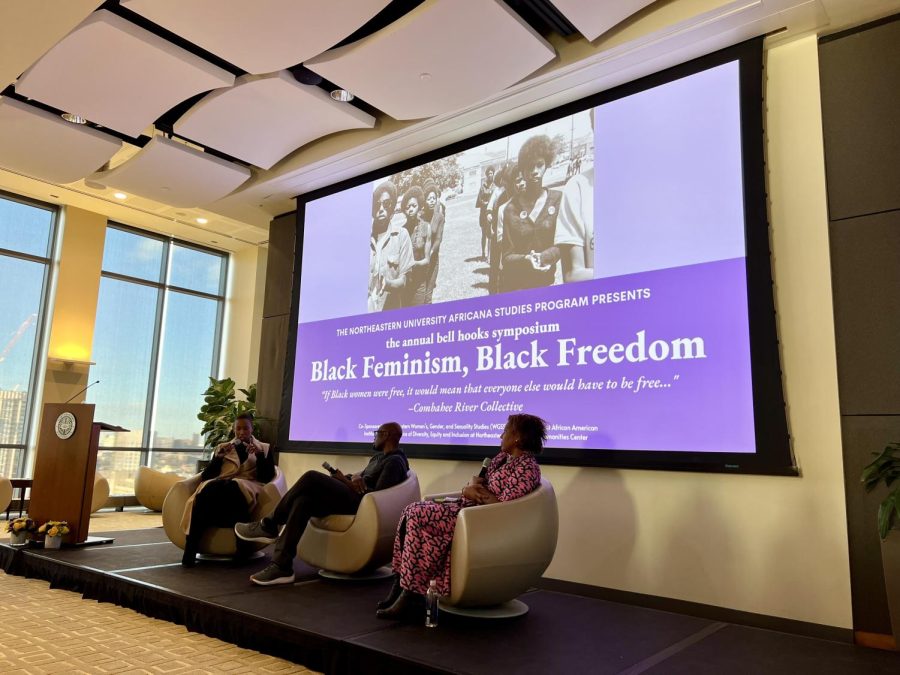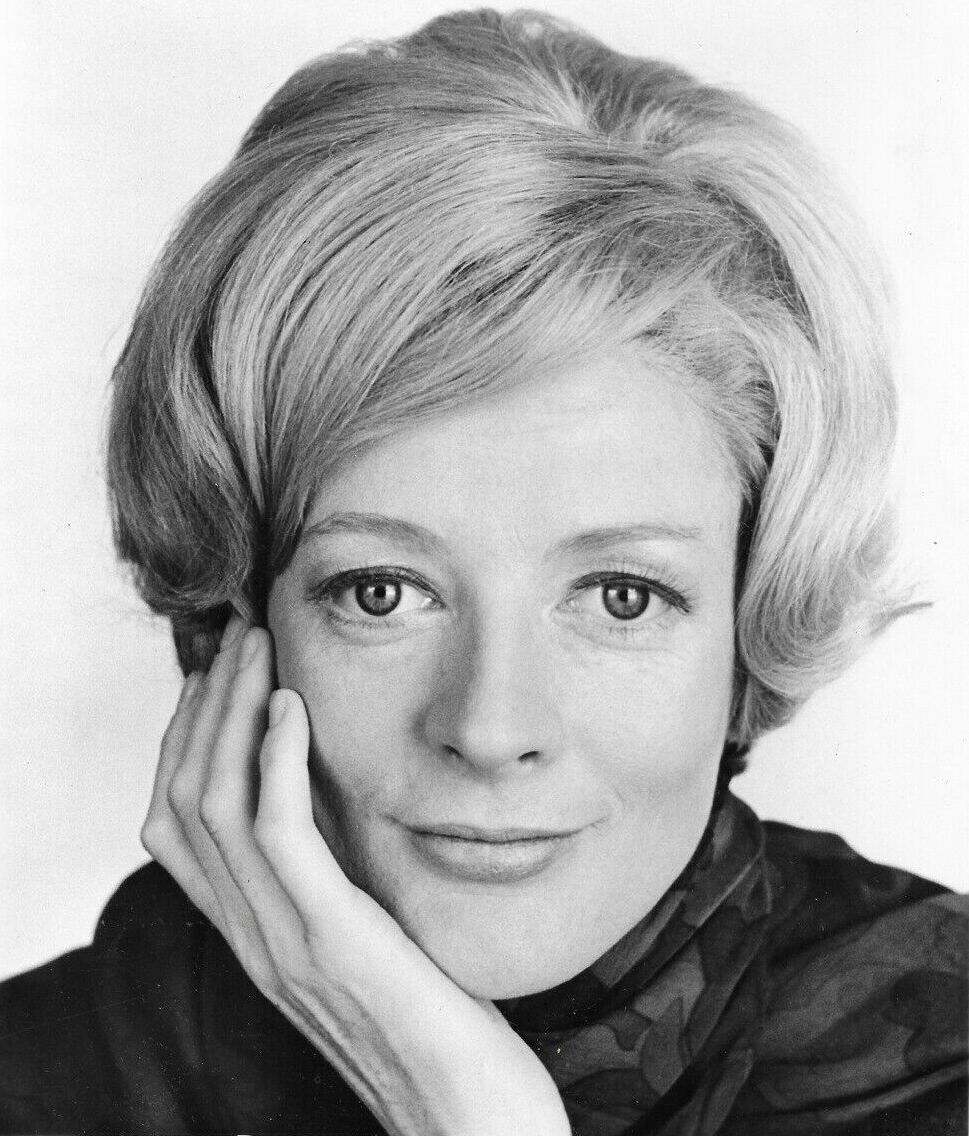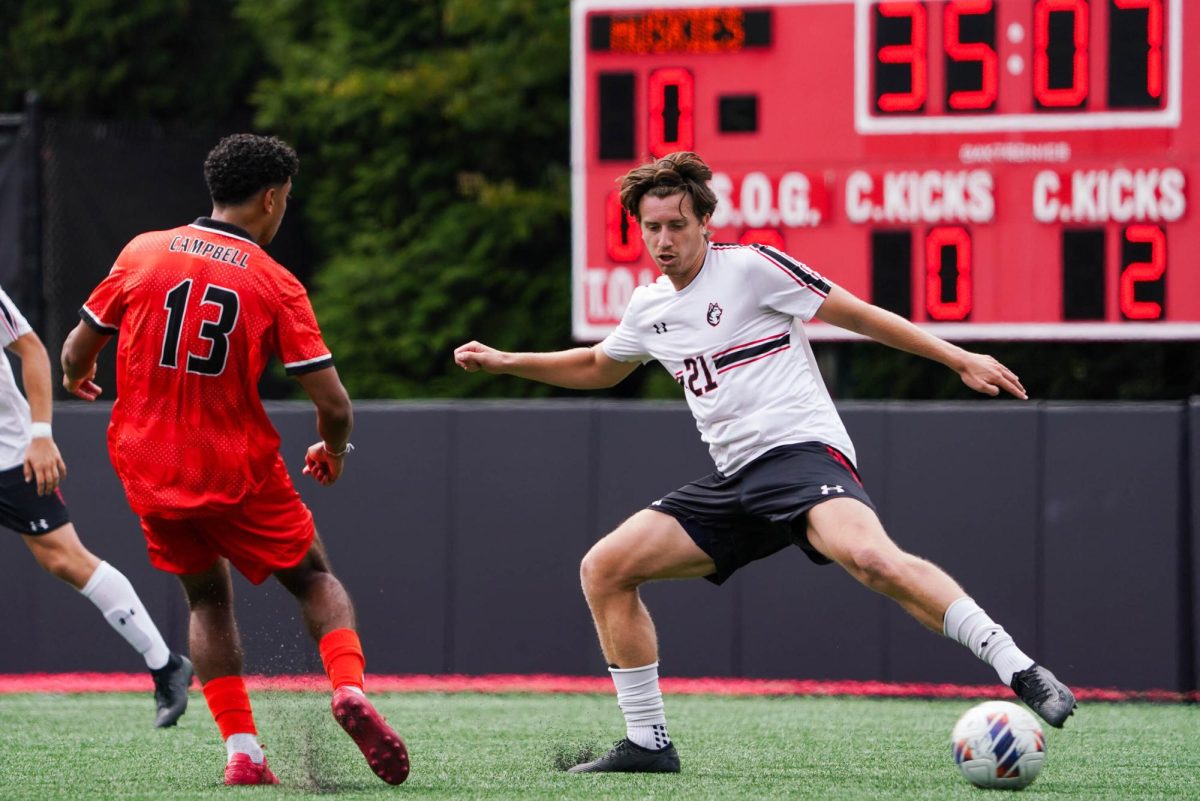Annual bell hooks symposium explores “Black Feminism, Black Freedom”
Dr. Meredith Clark moderates a discussion between Dr. Kevin Quashie and Dr. Salamishah Tillet during the final panel of the symposium. The second annual bell hooks symposium was hosted by Northeastern’s Africana Studies program.
February 10, 2023
In a commemorative start to Black History Month, Northeastern’s Africana Studies program hosted its second annual bell hooks symposium Feb. 3, themed ‘Black Feminism, Black Freedom.’
The program held its first bell hooks symposium last year — two months after hooks, née Gloria Jean Watkins, passed away — to honor her life and legacy as a Black feminist scholar, cultural theorist and writer who highlighted the need to elevate the experiences of Black and working-class women in discussions of feminism.
In her introductory remarks, Dr. Régine Michelle Jean-Charles, the organizer of the annual symposium series and the Northeastern director of Africana Studies, emphasized that this year’s theme is “inspired by the long history of Black feminism as a freedom project from its very inception.”
“In other words, for the Black feminist, Black freedom is always front of mind,” Dr. Jean-Charles told the dozens of audience members gathered in East Village for the day-long seminar.
Dr. Jean-Charles also noted that in the spirit of bell hooks, who famously penned herself in the lowercase to suggest that the work matters more than the author’s name, this year’s symposium is one with a lowercase ‘s,’ explaining the panelists weren’t going to present long, academic papers. Rather, they would reflect on their lived experiences about what Black freedom means to them.
The first panel, titled “Until Black Women Are Free, None of Us Are Free,” was moderated by Dr. Kabria Baumgartner of Northeastern’s History Department and joined by Demita Frazier, one of the founders of the Boston-based Combahee River Collective; Dr. Jovonna Jones, an assistant professor teaching 20th and 21st century African American cultural production at Boston College; and Asia Potts, a PhD student in the English Department at Northeastern. Each of the panelists spoke about their unique experiences learning to conceptualize freedom in a Black feminist context.
Frazier, who joined the symposium virtually, echoed much of the same ideas as hooks — the importance of including Black feminists who are “not highly educated or part of the middle class” — while Dr. Jones told the audience that for her, the answer to the elusive question of what freedom means arrives in a framework shaped by Nina Simone, bell hooks and her students, with whom she practices an exercise of imagining a new, safer world for Black individuals.
As for Potts, she credited her first introduction to Black feminism to Zora Neale Hurston’s novel, “Their Eyes Were Watching God.” She has since revisited the work through the lens of Afrofuturism, the theory of looking at the future and alternate realities through a Black cultural lens, and Potts’ research focus.
“Black women just writing the stories they wanted to tell is the foundation of who I am now,” Potts said to the audience. “Before the world began to credit us for the Black intellectuals we are, we have always told stories.”
For these scholars, Black storytelling is especially crucial in light of Florida governor Ron DeSantis’ recent ban on the state’s schools from teaching an Advanced Placement African American Studies course, expunging several Black authors including bell hooks.
“I think it’s really important to amplify the voices of scholars like bell hooks, but also lesser known people, … and I think especially when they’re being ‘banned’ that we need to continue to put their work forward and give people access to the breadth of their work,” Dr. Jean-Charles told The News.
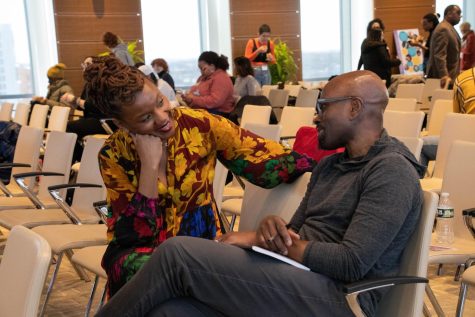
The second panel, “We Do This ‘Til We Free Us,” examined racial capitalism and the need for self care and communal healing within abolitionist practices. Amidst the ongoing fight for Black liberation, the panelists said activists must engage their spiritual and emotional needs.
The four panelists — Dr. Layla Brown, an assistant professor of cultural anthropology and Africana Studies; Dr. AK Wright, a Black feminism postdoctoral fellow; Jenia Browne, a third-year international affairs major and Africana Studies program assistant; and Dr. Annette Joseph-Gabriel, an associate professor of Romance Studies at Duke University — spoke on the importance of healing justice, mutual aid and forming strong communities as an extension of political organizing.
“I think the biggest thing in thinking about Black feminism and Black freedom is a particular way of engaging,” Dr. Brown told The News. “When we talk about that ethic of care and creating community, I think that’s one of the cornerstones of Black feminist thought. If we’re going to exist in a world where we have more access to a better life, we have to create a community where we’re accountable to one another before that.”
The final panel of the symposium, “How We Get Free…,” was a keynote conversation between Dr. Salamishah Tillet, a Henry Rutgers professor of African American Studies and creative writing; Dr. Kevin Quashie, a professor of English at Brown University; and Dr. Meredith Clark, the founding director of CAMD’s Center for Communication, Media Innovation, and Social Change and an associate professor of journalism.
In their conversation, the two writers discussed Blackness in the literature and culture of a white supremacist society, the concepts of freedom and Black aliveness and transforming the meaning of Blackness within their own works.
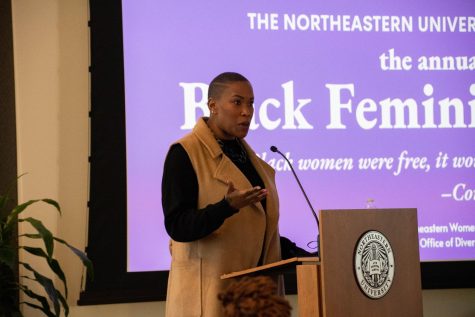
“Imagine a Black world,” Quashie said to the audience. “In an oppressive, anti-Black world, we are always turning to Black literature for it to teach us something about the humanity of Black people… Black literature becomes in service of this reparative, sociological project that I think undermines the creativity of the work… so imagine a world where everything is of Blackness. Every beautiful thing, every joyous thing, every vulgar thing, every ordinary thing.”
Both Tillet and Quashie wanted to explore works of art that display Blackness without the white gaze.
“Let the world be a Black poem,” Quashie said. “Let a Black person be a poem.”
The students, faculty and community members in attendance at the symposium found the panels to be both informative and moving, allowing them to reflect on their own identities and experiences.
Blen Wondimu, a fourth-year economics major, said the symposium allowed her to learn more about Black liberation efforts from those at the front of the movement.
“I think there’s a recurring theme of trying to imagine a world that doesn’t yet exist, and operating as if it does,” Wondimu said. “I found that to be really powerful because I really struggle with hope, and sometimes I resolve myself to my place in society and how the world operates, because it’s designed to break your spirit and have you feeling defeated. Just the idea of daring to imagine something different is really cool.”
Jayda Payne, a biotechnology graduate student at Northeastern, said the symposium offered activists and abolitionists a space to engage in discussion, but more should be done by the university to support the Black community of Boston.
“Hiring more Black people and having meaningful conversations that can catalyze change [is] very important,” Payne said. “Northeastern needs to diversify the community, and acknowledge the local communities they are imposing themselves on as the school expands.”
Tonya Grimes, a lifelong resident of Boston, attended the symposium after learning about it online.
“[In] my learning or knowing of bell hooks and Audre Lorde, they were really crucial to me getting to accept my heritage, my having hopefulness and also understanding that we do have an impact,” Grimes said. “[That] Black women can have an impact and not have to feel like we’re on the periphery of life.”


